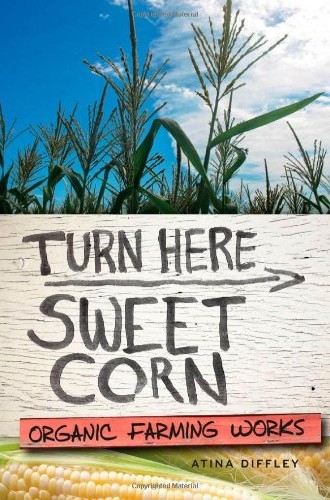Life on the land
My favorite book of the summer is Turn Here Sweet Corn, a memoir by organic farmer Atina Diffley. Her husband Martin started delivering vegetables from his family’s land to co-ops in Minneapolis in the early ‘70s, when co-ops were a new idea in Minnesota and few outside resources existed. Martin’s vocation, soon to be shared by Atina, depended on what they knew from their families’ experiences with farming, on what they learned on their own, and of course on the weather.
The book opens with “an explosion of light” that “rips me out of deep sleep.” It’s a hail storm in June 2005, one that costs the Diffleys 200,000 plants, or $150,000. (To begin to understand the scope of their farm, realize that this is only two crops out of 50 acres of vegetables.) The next morning, new members of the farm crew join the Diffleys and all weave their way through damaged fields, shocked at what they see.
But for Atina and Martin, this is not the first hailstorm. They assess the losses and adjust the day’s work accordingly. As Atina says,





